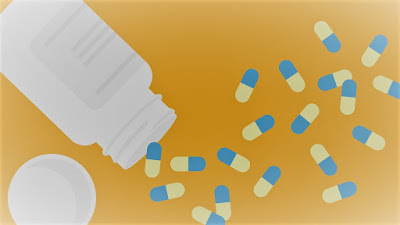 We're truly dumbfounded with the amount of patients we treat in our office asking for opioids after treatment. Yes, we understand there will be discomfort! Patients will do and say anything to obtain them. Though we're very understanding of the situation, our goal is to inform patients that nonopioids work just as well or even better than opioids. Also, our goal doesn't only apply to patients but other doctors as well.
We're truly dumbfounded with the amount of patients we treat in our office asking for opioids after treatment. Yes, we understand there will be discomfort! Patients will do and say anything to obtain them. Though we're very understanding of the situation, our goal is to inform patients that nonopioids work just as well or even better than opioids. Also, our goal doesn't only apply to patients but other doctors as well.
In the past, we've had patients with opioid addictions. Most of the time, these patients are hard to work with because they won't consent to treatment unless we assure them they'd being get a prescription for opioids afterwards. We hate to see a patient leave our office in pain! In these cases, patients will argue until we come up with an agreement which is asking them to try nonopioids first, if pain escalates, we'll prescribe 6 tablets of opioids and no more. Majority of the time, they don't need them.
Unfortunately, there are some patients who's addiction gets in the way of clear thinking. These are the patients we are very careful with. Though we dislike prescribing opioids, we will provide them. Knowing we won't provide more after they're gone, these patients go to their general dentist or medical physician and ask for more. What truly amazes us is that these doctors agree and give them an astonishing amount of tablets! By astonishing, we mean anywhere from 30 to 150 tablets! You believe that! We get these reports in the mail from certain pharmacies that monitor unusual filling of opioid prescriptions.What other doctors are prescribing is unbelievable so we were very happy when we recently came upon an article in the Mayo Clinic Health Letter (Volume 37 Number 1 January 2019) that helps our point about nonopioids being a better choice for pain relievers. We thought we share it with our readers.
Article Reads: "Opioid drugs such as oxycodone and morphine are known for their addictive properties as well as for their ability to relieve pain. Even though there's little research on the use of opioids for chronic pain, many people continue to use them for this purpose, despite the risk of misuse and dependence.
A study in the March 6, 2018, issue of JAMA further highlights the limited effectiveness of opioids for chronic pain.
 Researchers followed 240 veterans with severe back pain or pain related to knee or hip osteoarthritis who had pain that had persisted for at least six months. Participants were assigned to two groups, one that received an opioid, and the other that received a nonopioid pain reliever. Those in the nonopioid group were first given acetaminophen and nonsteroidal anti-inflammatory drugs such as ibuprofen or naproxen sodium. Some in this group were later given other nonopioid prescription drugs used for relief of more-severe pain as needed.
Researchers followed 240 veterans with severe back pain or pain related to knee or hip osteoarthritis who had pain that had persisted for at least six months. Participants were assigned to two groups, one that received an opioid, and the other that received a nonopioid pain reliever. Those in the nonopioid group were first given acetaminophen and nonsteroidal anti-inflammatory drugs such as ibuprofen or naproxen sodium. Some in this group were later given other nonopioid prescription drugs used for relief of more-severe pain as needed.
Over 12 months, there was no significant difference in pain-related function between the two groups. Those in the nonopioid group reported that the intensity of their pain was significantly better compared with the opioid group. Negative effects — including misuse, hospitalization and falls — caused more than twice the number of participants to drop out in the opioid group than the nonopioid group. The researchers summarized that opioids don't have any advantages over nonopioids to outweigh their risks.
Mayo Clinic experts acknowledge the risks involved with opioid use and recommend, if possible, alternatives to help manage pain. If an opioid is still recommended — such as for managing cancer pain — work with your doctor to use the drug safely."
Comments
Post a Comment